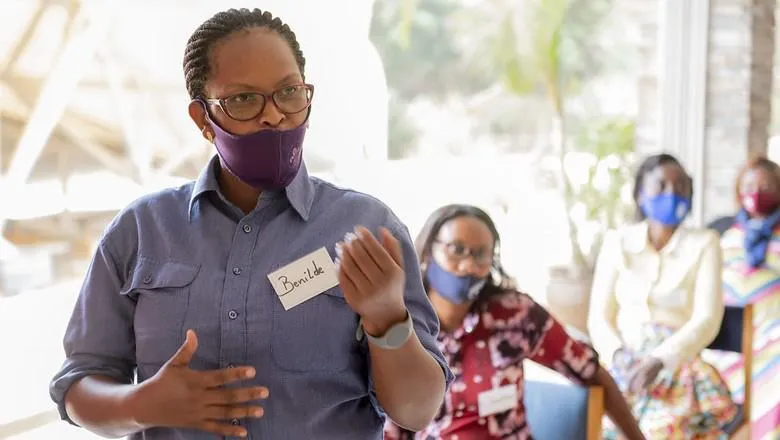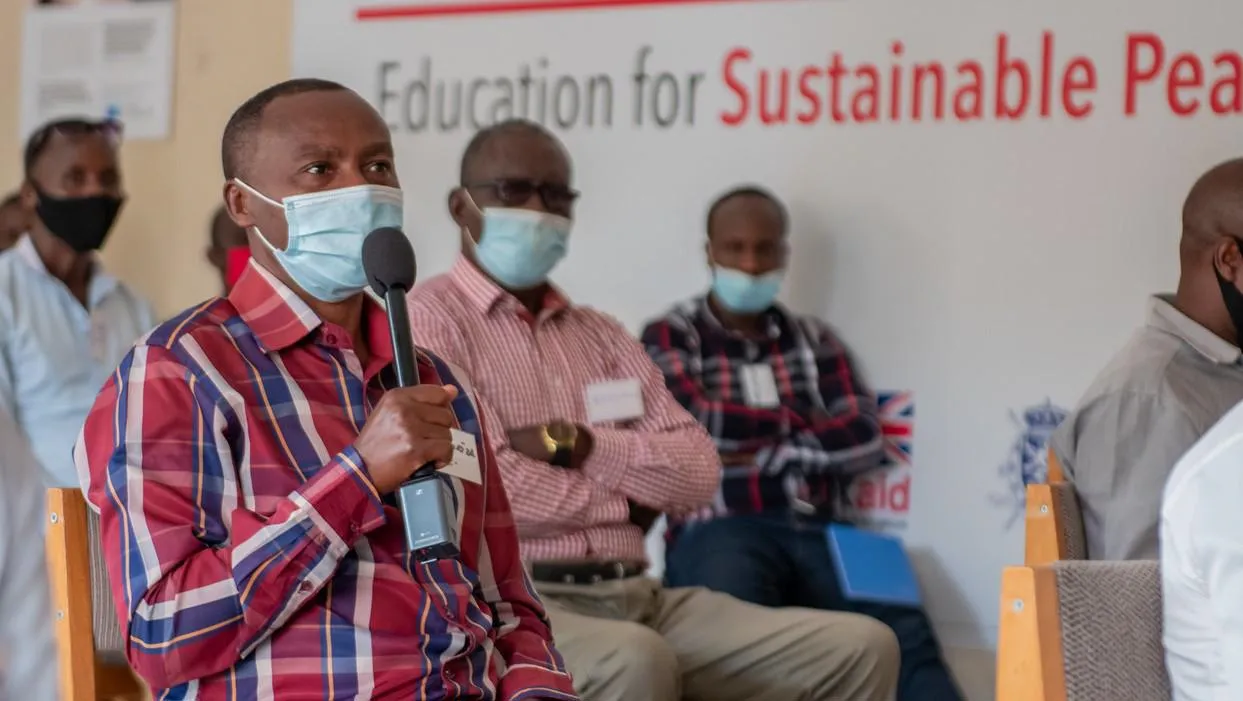07 December 2021
Workshop looks at Peace Education in Rwanda
The 1994 Genocide against the Tutsi in Rwanda showed us again the catastrophic consequences of division and discrimination. A workshop on 10 December will contribute to efforts to build a peaceful future in Rwanda through high school education.

The speed and scale of the Rwandan Genocide is hard to fathom. Over the course of one hundred days, in 1994, over 800,000 Tutsi and moderate Hutu were killed, with over one million lives lost as the result of the conflict. Many died at the hands of people they knew, as groups loyal to assassinated President Juvenal Habyarimana stoked political divisions along ethnic lines and communities turned upon themselves.
As Rwanda continues to rebuild, many have seen a vital role for education in tackling division. In 2015, Rwanda incorporated Peace and Values Education (PVE) into its national high school curriculum. PVE uses a variety of techniques to help students develop critical thinking, leadership skills and empathy.
Since March 2020, Dr Nicola Palmer, Reader in Law, and Dr Felix Ndahinda have led a team of top Rwandan social scientists on the British Academy-funded project Research-led Peace Education as Crisis Prevention in Central Africa, to assess and further develop the teaching materials used in high schools across Rwanda.
Dr Nicola Palmer said: “Having mapped the full range of PVE teaching materials used in Rwandan schools and in informal settings, we have developed model lesson plans that are informed by the project team’s current research on post-conflict reconstruction. These model lesson plans are designed to enable learners to discuss socially-sensitive subject matter in a supported and safe environment.”

The model lesson plans will be included on a new platform, Ubumuntu, developed by the civil society project partner, the Aegis Trust. The platform offers access to teaching materials currently being used in 4,300 schools across the country.
Dr Palmer: “This workshop builds on two earlier reflexive discussions with learners, teachers, academics and Rwandan policy makers including participation from the Rwandan Education Board (REB) and the newly constituted Ministry for National Unity and Civic Engagement (Ubumwe). It focuses on what the experience from the Rwandan context can bring to similar PVE interventions in the Central African Republic (CAR).”
The current project builds on a long-term collaboration between the Aegis Trust, King’s College London and SOAS, University of London.
In 2014, the Aegis Trust established its Research, Policy and Higher Education Programme (RPHE) under the leadership of Dr Felix Ndahinda and Professor Phil Clark, with Dr Palmer being appointed as one of the international advisors. The RPHE is committed to supporting Rwandan authors, through funding, training and peer-to-peer mentoring, to publish high-quality, peer-reviewed research with the aim of amplifying Rwandan voices in international scholarly debates across the social sciences. To date the programme has led to the publication of 17 peer-reviewed journal articles and four book chapters. Read together, this published work calls for a reorientation in the literature on post-genocide Rwanda, which has been characterised by a strong focus on the dominance of the Rwandan state in ordering social relations, drawing attention to the need to focus on inter-family and inter-generational legacies of conflicts, shifts in dynamics in households and changes to citizen relations with the state.
With support from the then-UK Department for International Development (DfID), Swedish International Development Agency (SIDA) and the British Academy, the RPHE programme has mentored 44 social science and humanities Rwandan researchers, who hold positions in Non-Governmental Organisations (NGOs), government departments and higher education institutions.
Seven of these Rwandan researchers are involved in the current project, namely Dr Felix Ndahinda, Ms Sandra Shenge, Dr Sylvestre Nzahabwanayo, Dr Mediatrice Kagaba, Dr Jean Leonard Buhigira, Mr Heli Habyarimana and Dr Glorieuse Uwizeye. The design of the supplementary high school teaching materials incorporates insights from these researchers’ cutting-edge work accessible on the Genocide Research Hub.
On Friday 10 December 2021, the project findings will be discussed alongside comparative perspectives on pedagogical genocide preventative work in an international online workshop hosted by the Aegis Trust. To attend the event please register here.

